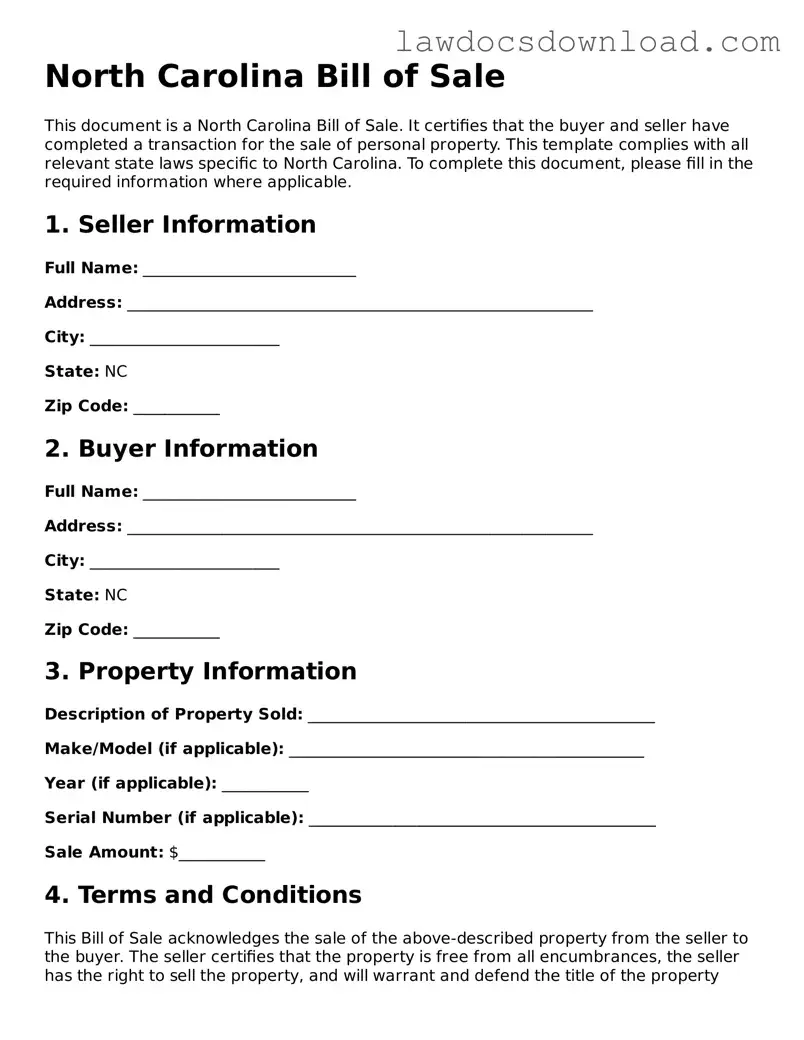Legal North Carolina Bill of Sale Form
A North Carolina Bill of Sale form is a legal document used to record the transfer of ownership for various items, such as vehicles, boats, or personal property, from a seller to a buyer in North Carolina. It serves as proof of purchase and can be important for registration, tax purposes, or in disputes. This document ensures that the details of the transaction are clearly outlined and agreed upon by both parties.
Launch Bill of Sale Editor Here

Legal North Carolina Bill of Sale Form
Launch Bill of Sale Editor Here

Launch Bill of Sale Editor Here
or
Free Bill of Sale
Get this form done in minutes
Complete your Bill of Sale online and download the final PDF.